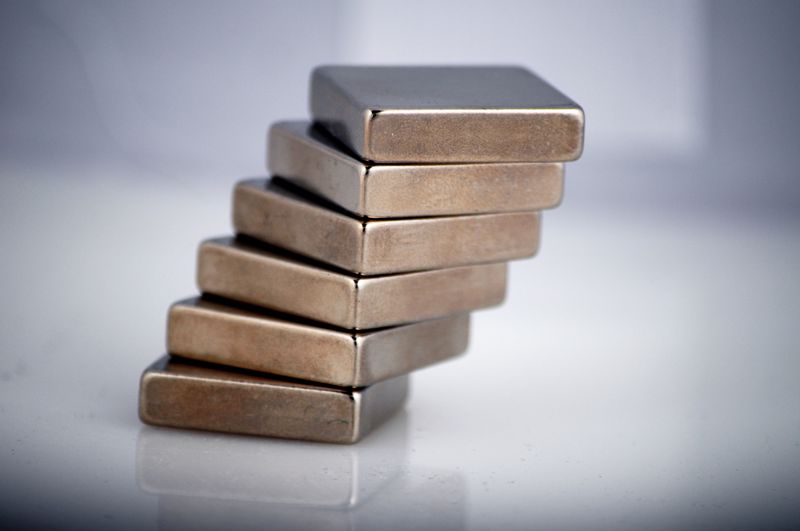Recently, an energy company based in Georgia began mining a substance called monazite, and shipped 20 tons of the rare-earth carbonate to Utah for processing, according to Freightwaves. From there, it was sent to another plant in Estonia so that it could be refined further and used in the manufacture of high-end electronics. As one of just two operations mining rare earth materials in the U.S., getting a more efficient supply chain off the ground is a must.

"We didn't even know we had a role to play in the industry until probably a year and a half ago," Curtis Moore, a vice president at the energy company, told the site. "[Monazite] is very high in magnetic rare earth elements — that's neodymium, praseodymium, dysprosium and terbium — which are the raw materials you need for these permanent rare earth magnets used in everything from electric cars to fighter jets."
Numerous companies are in the planning phase for introducing mining and processing efforts within the U.S., but it may take some time before the nation is able to handle these materials within their own borders at scale, the report said.
Outside competition
With so much riding on access to rare earth minerals, and the U.S. still largely in the nascent stages of being able to meet any kind of real demand for them on its own, lawmakers are nonetheless taking a hard look at where they are sourced, according to Politico. Currently, a significant percentage of them are sourced from China, and that may be a problem for the U.S. Department of Defense and other entities, because international relations between the U.S., its allies, and the East Asian titan are volatile. That, in turn, creates supply chain risk that could leave the military and other critical aspects of the American economy in a vulnerable position.
Recently, a bipartisan Congressional task force asked the Defense Department to "deploy the full range of American innovation to secure the supply chains involving rare earth elements" so if normal sources aren't fully available, fallback positions can be easily leveraged, the report said.
Why it's important
Currently, one of the most common uses for rare earth minerals is in the manufacture of renewable energy technology and adjacent products, such as solar panels, wind turbines, and electric vehicles, according to the Institution of Engineering and Technology. The supply chain needed to meet ever-growing demand for these materials from a "greening" energy sector is clear, but there is also environmental risk inherent to increased mining and shipping operations.
For all these reasons and more, decision-makers in a number of sectors must keep a close eye on the rare earth mineral supply chain and its development within the U.S. and abroad.



Post A Comment:
0 comments so far,add yours